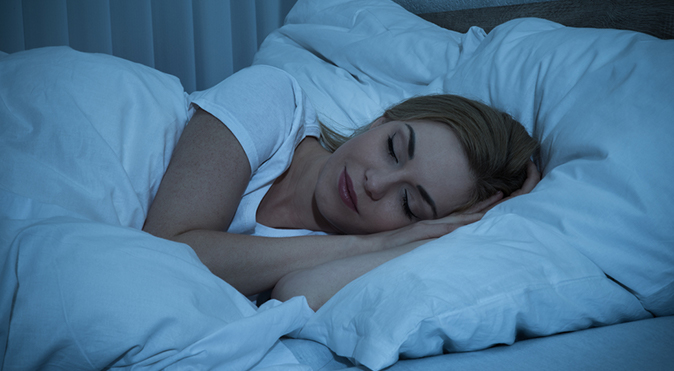Everything You Need to Know on how to Get a Better Sleep
The significance of adequate sleep can never be over-emphasized. Sleep has a direct relationship with the proper functioning of the body’s most vital organs, including the brain, lungs, and heart. A good amount of sleep enhances cognitive ability, alertness, focus, and energy. Over the past few years, however, intense work schedules have led to people sacrificing sleep and having irregular sleeping patterns. If you find that it is hard for you to decide on fixed sleeping and waking times, you might want to check out a sleep calculator.

In this article, we will help you understand the adverse effects of sleep deprivation and make you learn about effective ways to get high-quality and improved sleep.
Is Sleep Deprivation Harmful?
Chronic sleep deprivation can have a direct effect on the normal functioning of your brain. The central nervous system relies heavily on a healthy amount of sleep to regenerate its neurons and form necessary synapses that improve memory and cognition. Without adequate sleep, the brain becomes exhausted, and coordination control becomes poor. You will find yourself having trouble focusing on tasks and experience impaired learning ability. If sleep deprivation continues for an extended period, the side effects can become serious. These include hallucinations, panic attacks, anxiety, and impulsive behavior. You may find yourself in a foul mood and constantly get irritated over little things. The most dangerous aspect is that due to your brain being exhausted, you might experience microsleep. Micro-sleep refers to short bursts of sleep that may also occur while driving and can hence be very worrying as it is beyond your voluntary control.
Furthermore, lack of sleep also has adverse effects on the digestive system. Low amounts of sleep trigger the release of the hormone ghrelin, which increases your appetite. It, in turn, enhances the feeling of hunger and can hence, lead you to eat more than necessary. It leads to weight gain and obesity. Your bowel movements also become impaired, and you have higher chances of experiencing constipation.
5 Scientifically-Proven Tips to Get Better Sleep
- Minimize blue light exposure during the evening
Among the most common mistakes made by people in daily life is the excessive usage of electronic gadgets, like smartphones, laptops, iPads, and television. Most times, we are unaware of the numerous disadvantages this entails. In addition to wasting our time, such electronic devices also harm our sleep schedules. These electronic gadgets emit blue light that affects the circadian rhythm that tricks the brain into mistaking night for daytime. In turn, the levels of melatonin hormone (the chemical substance responsible for sleep and relaxation) fall, and individuals experience trouble sleeping.
Sometimes, we have strict nighttime deadlines that can make it impossible to avoid using our laptops and phones. However, lucky for you, we’ve compiled a few ways that make it easier to reduce our exposure to blue light in the evening.
- Start wearing glasses designed to block blue light. If you are a person who actively wears spectacles, you can also get special lenses that can filter blue light.
- Turn on blue-light filters on your phone and laptop. You can also check out apps that are designed precisely for this purpose.
- Try to minimize your screen time 2 hours before heading to bed and also turn off bright lights around the house.
- Avoid Caffeine Intake Late in The Day
It is estimated around 90% of the US population consumes caffeine on a daily basis. And, as long as the intake is appropriate, caffeine brings more good than harm. It stimulates the nervous system, enhancing our alertness, focus, and energy. There’s no better cure to morning grogginess than a cup of steaming coffee.
However, researchers recommend consuming coffee at set times. It has been observed that caffeine intake later in the day directly affects our sleep cycles. It activates our nervous system and prevents it from relaxing. As a result, it becomes difficult for us to fall asleep. Hence, it is advised to take morning coffee but avoid drinking it in the evening or a few hours before bedtime.
- Make your Sleeping Routine Consistent
Your body loves consistency. The more you turn your practices into fully set habits, the more your body adapts and accepts them. Hence when it comes to sleeping better, it is crucial to follow consistent sleeping schedules. Decide a convenient bedtime, and make sure to stick to it every day.
Your body’s circadian rhythm is perfectly aligned to sunrise and sunset, which in turn makes your brain subconsciously form waking and sleeping times. The more you distort these times, the more your sleep quality worsens.
Research has exhibited, time and again, that people with proper sleep schedules tend to have better long-term sleep quality, mental focus, and alertness during the day. In contrast, those with irregular sleeping patterns report sleeping problems, insomnia, and constant feelings of lethargy.
- Redesign Your Bedroom Space and Environment
It has been observed that our environment plays a significant role in determining the quality of our sleep. A clean, organized, and less cluttered bedroom space relaxes our minds and encourages our brains to sleep at fixed times. In addition to the physical space, other factors like noise and room temperature also come into play. Researchers have discovered that people who sleep in noisy environments are more likely to have poor quality sleep and wake up with a headache in contrast to those who sleep in quiet, peaceful environments. Furthermore, any light sources in the room, such as artificial night bulbs, can also hold our minds from shutting down and entering the sleep state.
It is equally crucial to regulate our bedroom temperatures. Typically, around 70 degrees Fahrenheit is an optimum temperature at which the human body neither feels hot nor cold. However, your ideal temperature can vary according to your body type. Try to sleep in a room where the temperature is comfortable as it will allow you to sleep peacefully.
- Engage in Relaxing Activities Before Sleep
Many of us can have trouble sleeping after a stressed day at work and that is quite understandable; it can become difficult to shut down our brains and stop thoughts from racing through our minds. But here’s a hack. Whenever you feel like de-stressing your brain, try meditating or doing a short yoga session. It can also be quite relaxing to take a hot, late-night bath. Body massages can also relax our muscles and stimulate the release of melatonin, making it easier to fall asleep.




